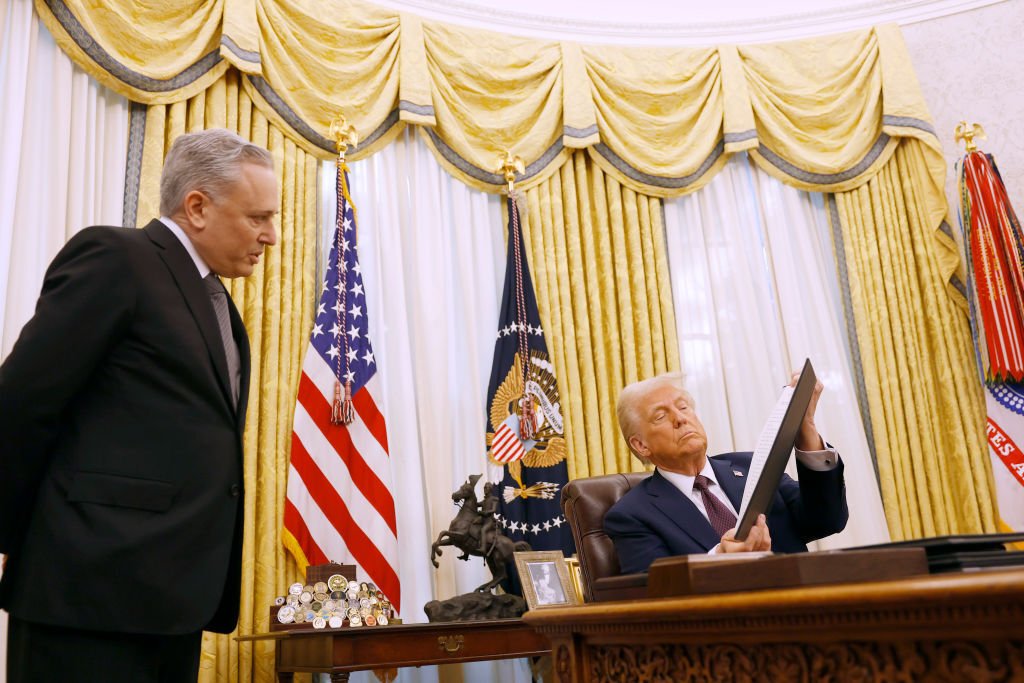Trump Administration’s AI and Crypto Strategy Unveiled
On January 23, 2025, in a notable move, President Trump, accompanied by David Sachs, the “AI and Crypto Czar,” introduced several executive orders focused on cryptocurrency and artificial intelligence from the Oval Office.
The administration aims to enhance the development and deployment of advanced AI technologies, which may involve easing certain environmental regulations to facilitate this growth. Sachs asserted that this plan could involve consequences for those he perceives as hindering progress. The government’s directive outlines a cautious yet ambitious approach to steering AI adoption while ensuring American workers benefit from its integration into their professional lives.
Described as the “American AI Action Plan,” this initiative follows a six-month assessment led by technology advisors in the wake of the previous administration’s efforts. The action plan underscores that to remain competitive, the U.S. must spearhead innovation, bolster infrastructure, and forge international alliances regarding AI. Sachs emphasized the necessity of steering clear of overreach in regulations that could stifle innovation.
Later on the same day, a proposed executive order pertaining to AI was also scheduled for announcement, coinciding with an “AI Race Winning” summit organized by a coalition of lawmakers and venture capitalists.
The Action Plan delineates three foundational pillars aimed at accelerating innovation, enhancing AI infrastructure, and securing U.S. leadership in international AI diplomacy. It suggests removing barriers posed by existing regulations, a move aimed at fostering a more conducive environment for AI development. The administration seeks to signal a clear preference for loosening regulations that they believe unnecessarily restrain innovation.
Despite previous challenges faced by Congressional Republicans regarding the implementation of AI laws, the plan claims that these failures shouldn’t prevent states from enacting necessary legislation without excessive restrictions.
Free speech remains a primary focus in AI endeavors, with recommendations for the Department of Commerce and the National Institute of Standards and Technology to amend existing frameworks to address issues like misinformation while reducing references to climate change.
Moreover, the administration is advocating for a broader integration of AI in government operations, manufacturing, and defense, proposing increases in both funding and regulatory flexibility to stimulate technological development.
The proposal includes streamlining permitting processes for data centers, potentially easing environmental regulations under various acts. It also emphasizes the availability of federal land for constructing new data centers while advocating for the use of American products in infrastructure projects.
Security risks associated with AI development have been highlighted, with a call for enhanced national security measures and collaborative efforts with allied nations to create a secure framework for AI technologies, all the while countering adversarial influences from countries like China.
Secretary of State and National Security Advisor Marco Rubio stated that these clearly defined policy goals are crucial for setting technology standards that American innovations can uphold globally.
The overall approach aligns with Trump’s historical stance on deregulation and shows a collaborative spirit with tech industry leaders who have supported his agenda, underlining the significant resources and computing power needed for sustained growth in American AI capabilities.
Sam Altman, CEO of OpenAI, echoed these sentiments, recognizing the transformative potential of AI but cautioning about the inherent risks, such as overreliance and external threats. He noted the rapid advancements in AI over the past five years, acknowledging both the possibilities and perils involved.
“If no one has any malicious intentions, society is just heading in a kind of strange direction,” Altman remarked.







